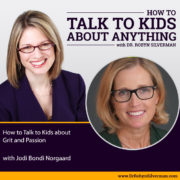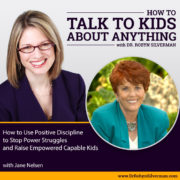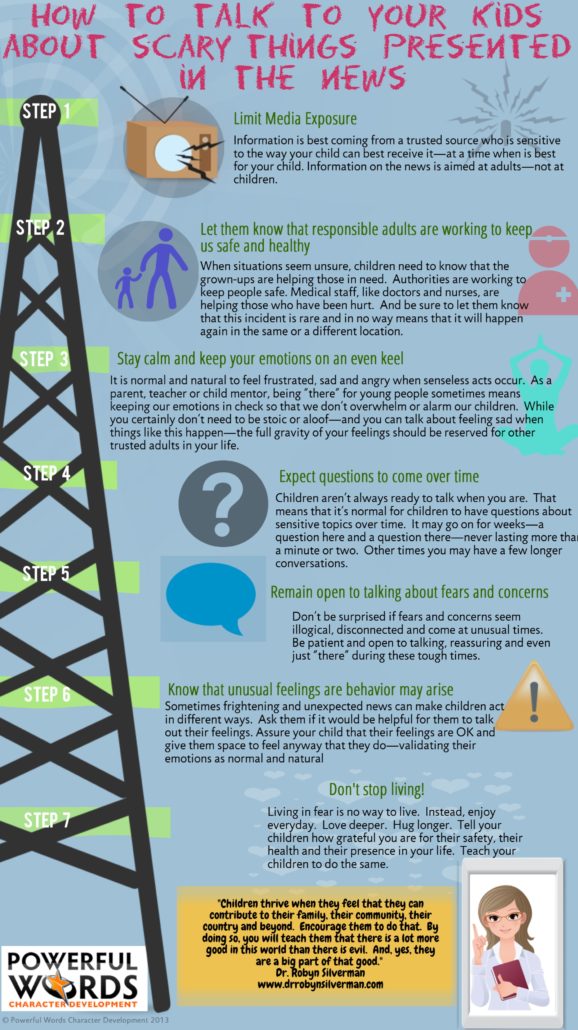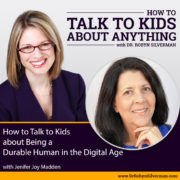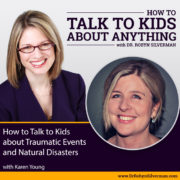How to Talk to Kids about Grit and Passion with Jodi Bondi Norgaard
Special guest: Jodi Bondi Norgaard.
How do we keep going, hammering away at our dreams, when we find ourselves faced with disappointment, frustration, failure and a big fat NO from those who can help make these dreams happen? It comes down to perseverance. Persistence. Determination and grit. We keep on going because there is a fire in us that tells us we must try yet another time. How does this play out in real life? Just recently, one of my very best friends posted a video of her daughter playing a song on the piano. A year ago, she had committed to learning “Piano Man” by Billy Joel—a very challenging goal for the then, 9-year-old. But she was adamant about doing it—and she persevered. She hit bumps in the road, valleys on tough days, fumbling fingers and wrong notes. But she kept going. Today, she debuted the song—and it was delightful. A full year of dedication to a goal from a child—that’s a huge part of her life. But she will always know that when she sticks to something—when she sets a goal and perseveres—she can make what seems monumentally challenging—an achieved reality.
Today we are going to talk to someone who also made her goal a reality despite facing frustration, failure and disapproval. She, too, persevered—and so we will devote today’s special podcast to how she reached down deep to keep going and what words of advice she has for our children who must learn to do this too, in their own way. How do we help kids find their passion? And how do we help them go after it when they find it—despite the fact that success doesn’t happen in a straight line?
Jodi Bondi Norgaard is the creator of the award-winning Go! Go! Sports Girls line of dolls and books for girls encouraging healthy and active play over fashion and body image. Jodi is a consultant, activist, and keynote speaker, inspiring and empowering women and girls throughout the world.
She has been featured on national media including The Today Show, Forbes, and Upworthy. In 2016, Jodi was invited by the Obama-era White House to participate in conferences on breaking down gender stereotypes in media and toys. The Go! Go! Sports Girls brand was recently acquired by Jazz-wears (Jazwares), an established cutting-edge toy company.

